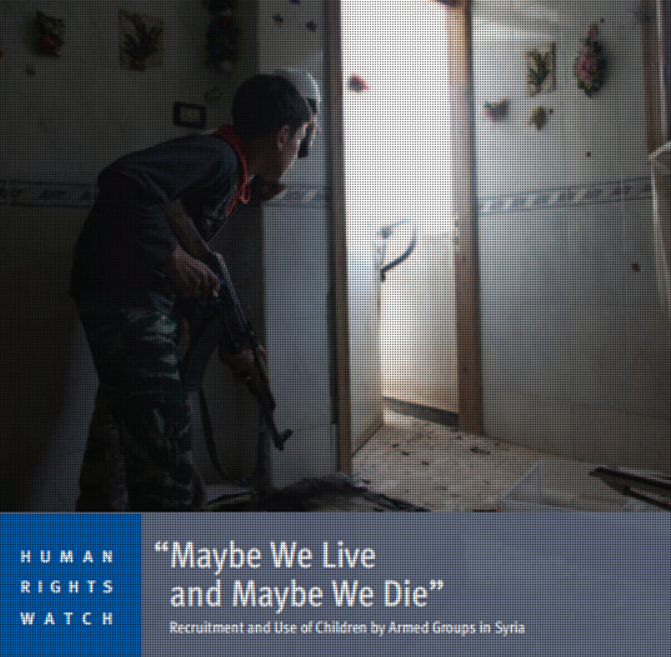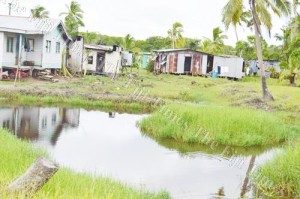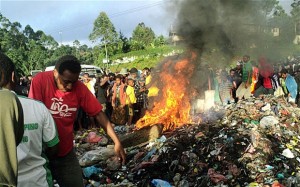
“I lost my studies, I lost my future, I lost everything”—Saleh, 17, who has fought for opposition groups since he was 15 years old.
For Syrian young adults, it’s becoming harder to go to school, and easier to take up arms. The result may be a generation with more training in shooting than in science. Looking forward, Syrians and international supporters need to address this generation of youth—ensuring opportunities for study, discouraging armed groups’ recruitment of children, and promoting re-integration of child soldiers.
According to Human Rights Watch’s June 23rd report, armed groups in Syria have used children as young as 14 in support roles and as young as 15 in active combat. The number of children participating in Syria’s fighting is unknown, but, as of June 25th, the Violations Documentation Center has recorded 196 “non-civilian” male children killed during the conflict. In interviews with Human Rights Watch, young men recalled participating in a variety of operations, including front-line fighting and suicide bombing preparations.
Young adults join are joining fighters for different reasons. Many volunteer to fight, others are recruited at schools. Some child soldiers are paid. One interviewee, who joined Jabhat al-Nusra at 14, reported earning a 20,000 Syrian pound (US $135) monthly salary. Another, who joined Jabhat al-Nusra at 17, reported earning a monthly salary of 10,000 Syrian pounds (US $68) in addition to a monthly food box.
Nonetheless, international law prohibits use of child soldiers. Most pointedly, the Optional Protocol to the Convention on the Rights of the Child—which Syria has ratified—bans states and non-state armed groups from recruiting or using children under 18 in armed conflict. TheRome Statute of the International Criminal Court—not ratified by Syria—classifies conscription of children under 15 as a war crime. Regardless of the legality, employing children as soldiers limits their capacity to re-integrate into a post-conflict society; child soldiers will have little experience at operating as adults in a non-combat capacity, and skill sets geared more towards fighting than participating in a non-combat economy.
A parallel, though inextricably linked trend challenges Syrian young adults: extremely limited opportunities for schooling. Within Syria, pro-regime forces have targeted students at universities, and anti-regime forces have kidnapped students travelling to exams. Due to the fighting, many Syrian students only return to school for their exams—sometimes only to die in the classroom. Refugees outside of Syria face considerable obstacles as well. In Jordan andLebanon, limited resources for education, Syrians’ own financial pressures, and administrative hurdles prevent Syrian students from going to school. It is important to note that not all Syrian youth are soldiers, but all Syrian youth could benefit from access to education.
Ultimately, Syrians and international supporters must not forget this generation. Syrian youth have the capacity to re-build Syria and advance discussions of justice and accountability in the long-term. Consequently, looking forward, engaging this generation must be seen as a component of holistic transitional justice efforts. A first step is to cease use of child soldiers, stop targeting students, and promote greater access to education.



